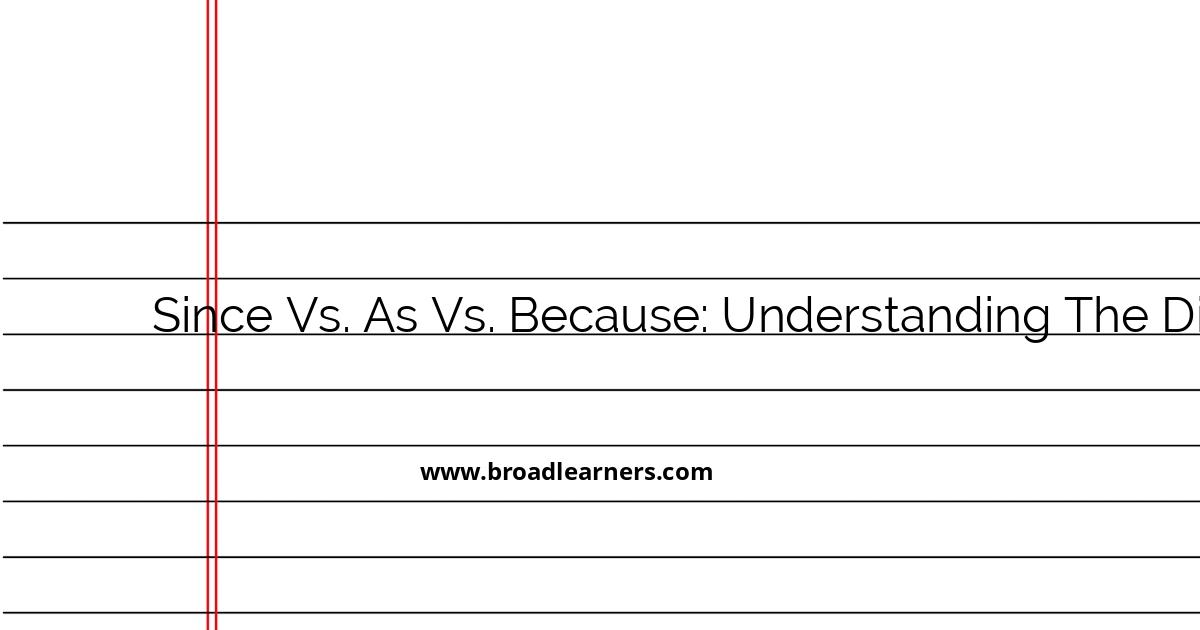In English, the words since, as, and because are often used to introduce clauses that explain reasons or causes. Each has particular uses and nuances, and understanding these differences is crucial for effective and precise communication. This article will explore each word in detail, with examples to illustrate their appropriate contexts.
- Since as a Conjunction
Since is commonly used to indicate time or reason. When used to denote reason, it implies a causal connection that is less direct compared to because. The primary focus is on what has happened since a particular event or time.
Example: Since the weather was good, we decided to have a picnic.
In this example, the decision to have a picnic is a consequence of the good weather, but the emphasis is on the time that has passed since the weather turned good.
- As as a Conjunction
As is a versatile conjunction and can be used to connect two clauses, suggesting a simultaneous occurrence or giving reasons. When it conveys a reason, it has a similar meaning to because, though it's often considered less strong.
Example: As the tickets were already sold out, we couldn't attend the concert.
Here, as explains why it was impossible to attend the concert. The emphasis is slightly less intense than if we used because.
- Because as a Conjunction
Because is the clearest and most direct way to introduce a cause or reason, indicating a strong relationship between the cause and effect.
Example: Because it was raining, the event was cancelled.
In this sentence, the cancellation of the event is directly due to the rain. Because clearly conveys the causal link.
Let's explore the subtle differences and appropriate usage of each:
Since in Detail
Since can be a bit tricky because it might refer to time or reason. When distinguishing between time and reason, context is key. For instance:
- Reason: Since it was late, I went home. – Here, since is used as a reason.
- Time: I've been waiting since noon. – In this case, since denotes the starting point of time.
Example:
Example: Since she has completed her degree, she's been searching for a job.
This sentence indicates a change that has happened after the completion of her degree.
As in Detail
As indicates reasons in a softer manner than because, suitable in casual or explanatory contexts where reasons are not the primary focus.
Example:
Example: As the study was inconclusive, further research is needed.
This implies that the study's results lead to the need for additional research, but doesn't emphasize the cause like because might.
Because in Detail
Because is straightforward and intensifies the cause-effect relationship. It is ideal when clarity is necessary.
Example:
Example: The athlete was disqualified because she broke the rules.
Here, because makes clear the direct reason for the disqualification, emphasizing the rule-breaking.
By understanding and applying these nuanced differences, you can enhance clarity and effectiveness in your writing. Each of these words has its rightful place depending on the focus and strength of the causal relationship you wish to emphasize.

Did I miss anything? Respond below